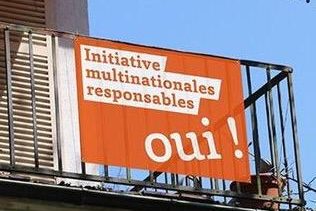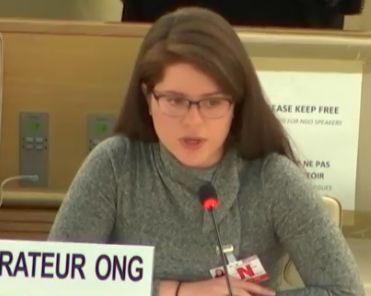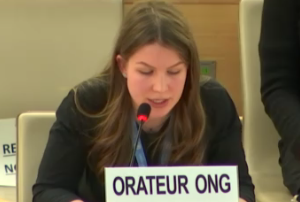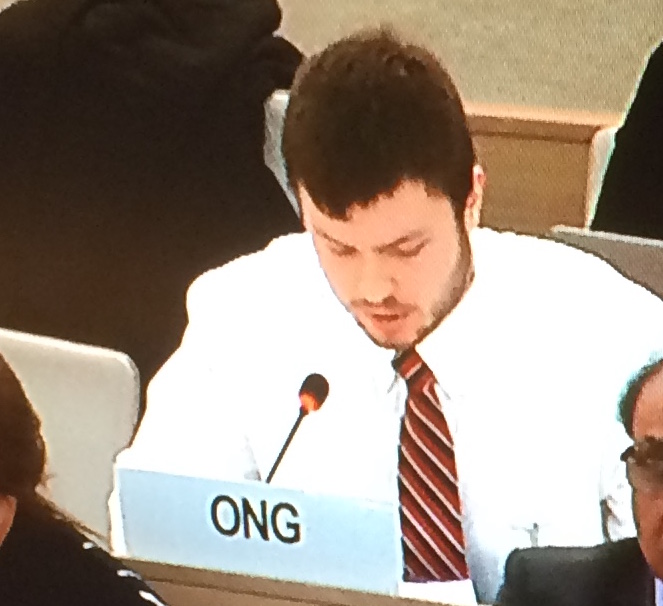
Nov 29, 2020 | News
The ICJ and its Swiss section (ICJ-CH) regret the results of the vote yesterday in Switzerland rejecting the popular initiative for responsible businesses. While the majority of the popular vote approved the initiative, there was no majority of voters in a majority of Cantons.
Under the Swiss constitution, to be approved, such initiative amending the constitution needs the majority of both the popular vote in Switzerland and in a majority of Cantons part of the Swiss Confederation.
“The strong support gathered by this initiative, expressed in the majority of the popular vote, is encouraging, and a strong message that the Federal Parliament and the Federal Council must take into account in the process of the implementation of the legislative counter-proposal and in further legislation,” said Marco Sassòli, ICJ commissioner.
A counter-proposal prepared by the Federal Council is now approved by default. This counter-proposal foresees due diligence obligations for some sectors and reporting obligations, but no specific legal liability.
The proposed initiative would have required multinationals based in Switzerland to respect human rights also abroad, and to carry out human rights due diligence to identify and prevent potential human rights abuses.
It would also have clarified the multinational’s legal responsibility for violations of internationally recognized human rights and environmental norms by enterprises that it controls and operate abroad.

Mar 9, 2020 | Advocacy, Non-legal submissions
The ICJ and Lawyers’ Rights Watch Canada have highlighted the link between human rights violations and corporate accountability in South Sudan, at the Human Rights Council in Geneva.
The statement, delivered in an interactive dialogue with the Commission on Human Rights in South Sudan, read as follows:
“The International Commission of Jurists (ICJ) and Lawyers’ Rights Watch Canada thank the Commission on Human Rights in South Sudan for its report (A/HRC/43/56).
We underline the Commission’s ongoing concerns about lack of access to justice, entrenched impunity for serious crimes and human rights violations; continued threats against human rights defenders, journalists, and dissidents; and corruption in oil and non-oil sectors.
We appreciate the Commission’s continued investigation into enforced disappearances, including the 2017 enforced disappearances and extrajudicial killings of human rights lawyer Dong Samuel Luak and opposition politician Aggrey Idri.
We remain concerned by the lack of effective oversight of oil and non-oil enterprises and revenue misappropriation that has fueled violations. In the light of the findings by the Commission’s 2019 report (A/HRC/40/69, A/HRC/40/CRP.1) pointing to the oil industry as a “major driver” in the continuation of the armed conflict and resulting human rights violations, we would like to ask what follow up to those findings does the Commission intend to conduct in the future?
Potential corporate complicity with crimes under international law demands investigation and a strong monitoring mechanism for the use of oil revenues should be established.”

Mar 8, 2019 | Advocacy, Non-legal submissions
Speaking at the UN, the ICJ today urged all States from all regions to participate actively in the process towards a treaty on business and human rights.
The statement, delivered during a general debate on thematic issues at the UN Human Rights Council in Geneva, read as follows:
“Mr President,
The report on the Fourth session of the Intergovernmental Working Group to establish a legally binding instrument in the field of business and human rights opens opportunities for States and the international community to build a multilateral legal framework in this field.
We continue to urge all States from all regions – especially those that have been reluctant to engage- to actively participate in this process.
The ICJ considers that this draft should be based on transparent consultation and participation and respect standards of clarity and precision.
Recent dramatic events in Brazil and South Sudan show the central place that a system of legal responsibility for businesses, including for complicit participation in abuses, should have in an international treaty.
The dam collapse in the Brazilian locality of Brumadhino and the evidence pointing to oil industry complicity with serious human rights violations in South Sudan show the global scale of the problem and the involvement of companies from all corners of the world.
A treaty should also provide to all states a set of common standards effective collective action to guarantee access to justice in a transnational setting.
The creation of an international legally binding framework for States to maximize action and cooperation regarding human rights abuses in the context of business operations remains a compelling necessity of our times.
I thank you.”
The statement may be downloaded in PDF format here: HRC40-OralStatement-GDitem3-2019

Mar 9, 2018 | Advocacy, Non-legal submissions
The ICJ today delivered an oral statement to the UN Human Rights Council, highlighting the need for substantive discussions towards a treaty on business and human rights to be transparent, broad-based with clear timelines.
The statement, which was made during the General Debate on item 3 with the Human Rights Council, read as follows:
Mr President,
Regarding the “Report on the third session of the open-ended intergovernmental working group on transnational corporations and other business enterprises with respect to human rights” (A/HRC/37/67), the ICJ notes with satisfaction the holding of the third session and congratulates the participants, especially the wide participation of civil society groups. The ICJ calls on States from all regions to engage meaningfully in the important work of the OEWG.
The discussions during the third session confirm the need for an international treaty in the area of business and human rights to fill the existing normative and legal protection gaps. Recent years have seen little improvement in this area despite the growing State and business discourse about policies and commitments. Harassment and attacks on human rights defenders that work in the area of corporate accountability have increased and the difficulties for victims of abuse to have access to an effective judicial remedy persist, especially at the transnational level.
The ICJ calls for a transparent and broad-based consultation process with clear timelines to move in the direction of a draft treaty on the basis of the document “Elements for a treaty” presented by the Chairperson –Rapporteur. The ICJ calls on all States and stakeholders to engage responsibly in this process to enable the fourth session of the Working Group to focus on substantive negotiations overcoming divisions on procedure and politics.
Thank you.

Oct 24, 2017 | Advocacy, Non-legal submissions
Human rights NGOs call for a treaty to cover all business enterprises and not only those of transnational character.
Universal-Oral Statement Business Treaty-Advocacy-Non legal submission-2017-ENG (full statement in PDF)









